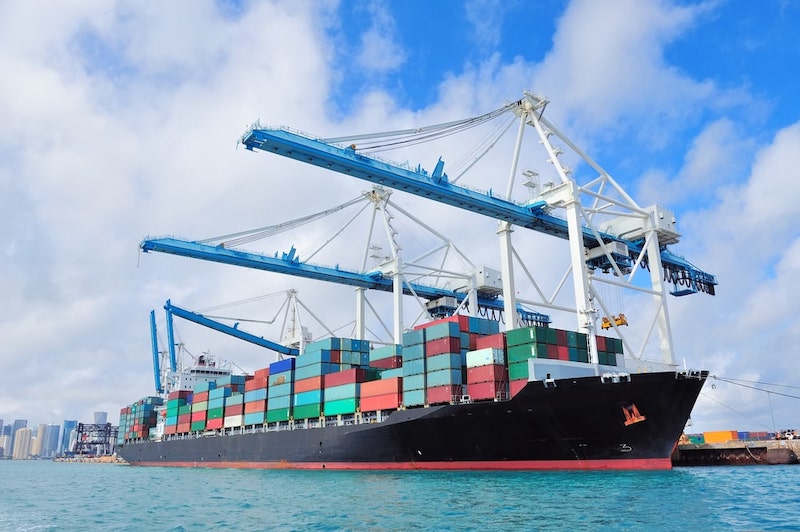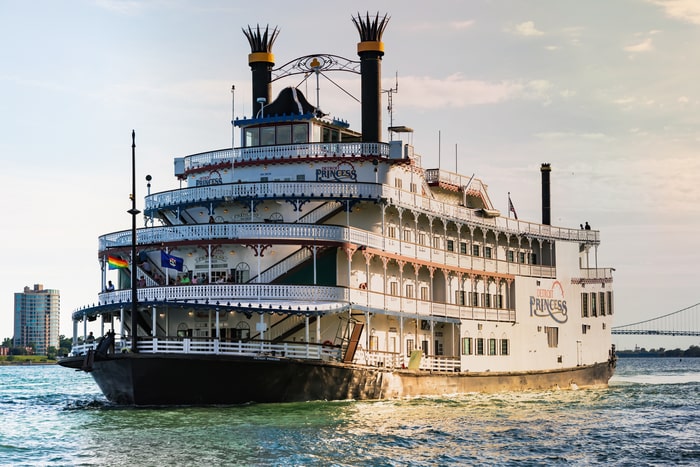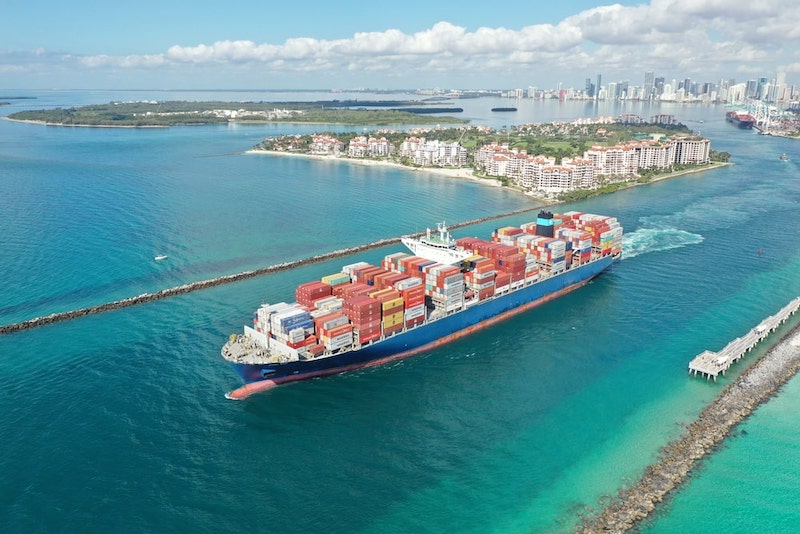The Country’s Leading Maritime Accident Attorneys at Lipcon, Margulies & Winkleman, P.A. Help Barge Injury Survivors Fight for Fair Compensation and Justice for Their Suffering
When you are injured, you need a team on your side with experience, accolades, and a track record of success. In our 50 years of business, Lipcon, Margulies & Winkleman, P.A. has settled more than 3,000 cases and appeared on TV as a knowledgeable resource in personal injury and maritime accident claims hundreds of times. Collectively, we have recovered hundreds of millions of dollars and counting for our past clients as far back as 1971. Our team of 16 experienced maritime lawyers, including several of whom have been named “Best Lawyers”® by US News & World Report every year for nearly a decade; and Board Certified attorneys in Admiralty and Maritime Law, is unmatched in the industry.
Barges are massive vessels, so when something goes wrong and a barge accident happens, the results can be devastating. While you may have grounds for legal action through maritime law, barge accidents can be complex, scary, and expensive.
Fortunately, you do not have to deal with this without the maritime accident attorneys at Lipcon, Margulies & Winkleman, P.A on your side. Your barge accident lawyer can provide top-tier experience and the tools to help barge workers get the funds they need through the Jones Act and other applicable maritime laws, including immediate funds for living expenses and medical care.
Common Types of Barge Accidents
Because barges are such large vessels, serious injuries can happen to barge crew members when something goes wrong. Unfortunately, a barge accident injury can be severe and can leave you struggling to recover from your injuries.
Our barge accident lawyers can help. If you have suffered any of the following injuries in a barge, tanker, or cargo accident, among others, you may have grounds for compensation that covers the full costs of your suffering, which can help you make a full recovery following your devastating accident.
Capsizing and Collisions
Dry bulk cargo barges are self propelled or move using smaller vessels. While this is great for hauling huge amounts of cargo, it can also be difficult to avoid collisions. Unfortunately, this can lead to serious injuries to offshore workers.
Likewise, barges can capsize, despite their massive size. A severe storm or even operator errors can lead to severe injuries. Fortunately, an injured seaman can always seek help from barge accident attorneys who have the tools to help make a full recovery.
Machinery and Cargo-Related Incidents
Barges also typically have large amounts of cargo and related machinery. Unfortunately, defective equipment can injure crew members in severe ways. Crushing injuries are common when cargo is improperly secured and stored, allowing it to fall or slide without warning. According to maritime law, injury victims in the maritime industry may have grounds to see compensation when this happens.
Barges may also be carrying heavy machinery. When that heavy machinery is defective, it can crush, cause traumatic amputations, or even electrocute barge workers. That can lead to severe injuries and even death. If this happens, you may need a highly qualified barge accident attorney on your side.
Fires
Jack up barges are built for use on oil rigs. However, if something goes wrong with the heavy machinery and tools associated with working on a barge like this, it can lead to a fire. On the water, that can be a deadly situation, especially with the amount of oil that may be in and around the water.
When a barge, tanker, or cargo boat catches fire, you may need to recover compensation for the devastating suffering you have been through. Speak with a knowledgeable personal injury attorney about the trauma of your experience and the extent of your barge injury to learn more about what you can do when injured on a barge.
What Injuries Are Common to Barge Accidents?
Workers on many barges around the world suffer injuries that lead to serious medical costs. The injuries sustained can vary widely, and they can vary in severity from a minor wound to a life-threatening or life-altering accident.
For example, fall accidents from the slippery services on the boats can lead to sprains, strains, and even bone fractures. Other injuries include burns, traumatic brain injuries, spinal cord injuries, internal bleeding, and more.
Liability for a Barge Accident
When you are on a barge, and you have sustained an injury, the law requires you to determine who is responsible for the negligence that caused your suffering. While storms and other environmental factors are sometimes the cause of your injuries, getting your medical expenses covered for a personal injury may require determining who should be held liable for your suffering. Some of the parties we’ve sued for barge, cargo, and tanker accident injuries include:
- American Seafoods
- Antillean Marine Shipping Corp.
- Tropical Shipping
- El Faro (TOTE Maritime & Sea Star Line)
- CMA CGM Group
- Maersk Lines Limited
- Crowley Maritime Corporation
Often, the responsibility falls on your employer. If you or a family member were injured by barges, tow lines, and other parts of working on a ship, you may have grounds for an LHWCA claim. You may also be due compensation through a lawsuit, depending on the details of your case.
Compensation for Injured Seafarers
The good news is that you can collect damages for the suffering you have experienced because of a barge accident. A barge accident lawyer can guide you through your claim to collect evidence, calculate the full extent of your damages, and finally claim for your injury on a barge or other vessel.
Below are some of the damages you may need to seek when pursuing maximum compensation through the Jones Act or the LHWCA:
- Medical bills
- Lost wages
- Other expenses related to the accident
- Future medical care
- Pain and suffering
Need any or all of these types of compensation? Your dedicated accident lawyer is here to help, starting with a free consultation.
How Can a Maritime Lawyer Help Me?
When you are seriously injured on a barge or other boats, you may need legal support that provides the tools you need to take action. How can a maritime lawyer help you?
First, our team provides a combined experience of more than 200 years. Our extensive experience goes towards providing you with the tools and resources you need for a successful claim. We have been developing strategies and arguments for injured workers like you for years, and we have a track record of success to prove it.
The best part is that you do not pay if your claim is not a success. We do not want to add to the cost of your recovery, and so we work on a contingency fee, meaning you only pay a percentage of your awarded compensation if we win.
Our Top-Rated Barge Accidents Law Firm Demands Injured Maritime Workers Be Paid Maximum Compensation for Their Damages and Trauma
When you need a team you can trust, you need a team where US News & World Report has named four attorneys as “Best Lawyers” ® in America. Our law firm has the awards and recognition to show we are leaders in the fields of maritime and admiralty law. We are proud to put our 200+ years of combined experience to use for our clients.
When you are injured in a barge accident or other maritime accidents, you need legal representation on your side that is prepared to protect your legal rights. The responsible party may try to avoid paying for the devastating injuries you may have suffered on a barge.
Fortunately, the team at Lipcon, Margulies & Winkleman, P.A. is here to help, starting with a confidential consultation about the serious injuries and circumstances you have experienced. If you are struggling to recover from one of these accidents, do not hesitate to reach out for help by calling 877-233-1238 or filling out an online contact form.
Other Practice Areas
- Cruise Ship Accidents
- Maritime Lawyer
- Boating Accidents
- Yacht Accident Lawyers
- Parasailing Accidents
- Jetski Accidents
- Seafarers Rights Attorney
- Dock Accidents
- Scuba Diving Accidents
- Swimming Pool Drowning Accidents
- Commercial Fishing Accidents
- Riverboat Accidents
- Ferry Accidents
- Tender Boat Accidents
- Airbnb Lawyer
- Short Term Rental Lawyer








